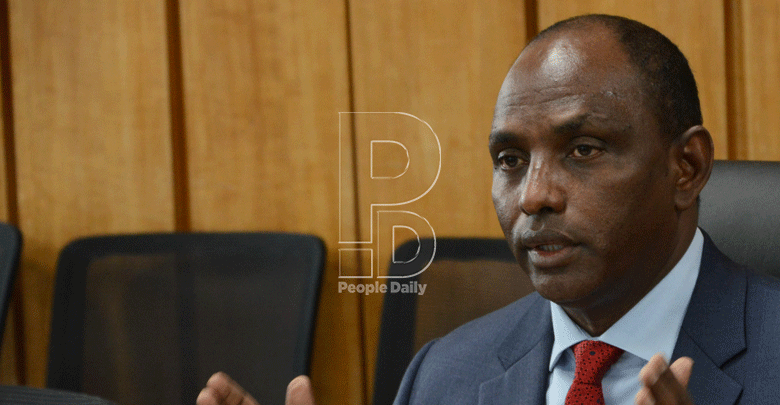Food, taxation, stimulus most Kenyans’ wish list

National Treasury Cabinet Secretary Ukur Yatani will tomorrow table the 2021-2022 budget with Kenyans expressing mixed expectations over the ambitious Sh3.66 trillion spending plan.
While different sectors of the economy expect quick fixes in terms of cash injections, Kenyans hope a trickle-down effect will be felt this time round, as the economy struggles with Covid-19 shocks.
Captains of industry want the government to increase the post pandemic Economic Stimulus Programme to Sh500 billion in order to push a robust recovery of the economy.
As part of its budget wish-list, the Kenya Association of Manufacturers (KAM) said in the stimulus package, priority should be to strengthen the health sector in terms of infrastructure and personnel, purchase of locally produced goods to support businesses, and labour-intensive programmes as well as payment of pending bills.
KAM also wants Treasury to freeze tax increases and to enhance cash flow for businesses and ordinary citizens, as the impact of the pandemic continues to negatively affect the economy.
In a proposal to the National Assembly’s departmental committee on Finance and Planning, the lobby is also pushing for reversal of the 1 per cent minimum tax proposal and reinstatement investment deduction, where investors can claim 150 per cent allowance for capital expenditure on building or machinery exceeding Sh200 million if the investment is outside Nairobi.
“We are hopeful that the government will take up these proposals as they are geared towards cushioning industry and the public against the pandemic and to promote a robust recovery,” said KAM chief executive Phyllis Wakiaga.
Unpredictable taxation regime
The official said the unpredictability of the taxation regime has continued through the Covid-19 pandemic period, causing businesses to re-evaluate and, in some instances, to relocate their operations, a trend, she said, “needs to be urgently reversed so that Kenyans can reinvigorate the economy”.
On its part, the Architectural Association of Kenya (AAK) decried high duties on building material which had made constructing houses expensive.
AAK vice president Wilson Mugambi said there needs to be more incentives especially on building materials and land to stimulate the construction sector.
“We need to reduce duty, especially on alternative building materials which are so high, for construction to be vibrant and developers to churn out more units,” said Mugambi.
The official noted that for the last three months, steel which is an integral material in construction, has gone up by almost 20 per cent, with the price per kilo moving from Sh400 to Sh500.
On the other hand, players in the tourism sector are eagerly waiting to see new measures to address current challenges facing businesses and policy options to build a sustainable and resilient industry from Yatani.
The sector that contributes about 10 per cent of the Gross Domestic Product is shrinking as a result of the pandemic and players believe the government would consider increasing allocation for marketing through the Kenya Tourism Board.
Business recovery
Kenya Coast Tourism Association KCTA executive director Julius Owino is anticipating a budget increment to revamp the sector through marketing. He hopes the sector will get a reasonable allocation to facilitate business recovery.
“The industry needs to be revamped, we need a tourism budget to do marketing, uplift the economic status of tourism key establishments as well as to strengthen client confidence. The government needs to be creative to cushion the common man from over-taxation, especially on common goods,” said Owino.
Majority of Kenyans who spoke to People Daily are anticipating the budget will foster a new beginning in their lives by addressing challenges facing them.
“Our expectation is to see more resources channelled to small businesses and sectors that are struggling to stay afloat many of Kenyans are jobless because businesses are suffering heavy taxation from government,” said Kamau Wairigi who runs a gas refilling station in Bombolulu.
Similar sentiments were shared by Rukia Abdalla, a vegetable vendor at Kwa Karama market. Rukia says this year’s budget should factor in relieving the common man from high cost of food products including bread and vegetables whose cost has increased drastically.
“If the cost of bread and other food products including maize flour can be adjusted in the budget, many families will feel relieved, my business of selling vegetables has been struggling because many of my customers have no money to buy as before,” Abdalla told People Daily.
Tax on agricultural products
Kenya Association of Hotel Keepers and Caterers chief executive Sam Ikwaye said any tax on agricultural products will deal a blow to the hotel industry. The official asked Treasury to consider some tax reliefs on basic products.
“Whatever budget will be given, it should target giving relief to struggling sectors like tourism, more importantly the government should shelve any VAT on food products,” said Ikwaye.
In Kisumu, traders led by the county Kenya National Chamber of Commerce and Industry branch chairman Israel Agina hope the budget will accelerate the business recovery amid the Covid-19 pandemic.
“We hope to see a budget that will be cognisant to the fact that stimulus funding is necessary as this will go a long way in accelerating the recovery process in business performance,” Agina said.
According to the official, the business community foresees a bleak future given increased government borrowing.
“Our prayer is that the debts will not be loaded on taxes because Kenyan entrepreneurs and people in general are currently experiencing low cash flow,” he added
Treasury CS Yatani’s Sh3.6 trillion budget has been described by financial analysts as over-ambitious, given the limited headroom for revenue collection. Out of the projected money, the Kenya Revenue Authority (KRA) is earmarked to collect Sh1.8 trillion, with the rest coming from debt instruments. Report by Noel Wandera, Harrison Kivisu and Noven Owiti








